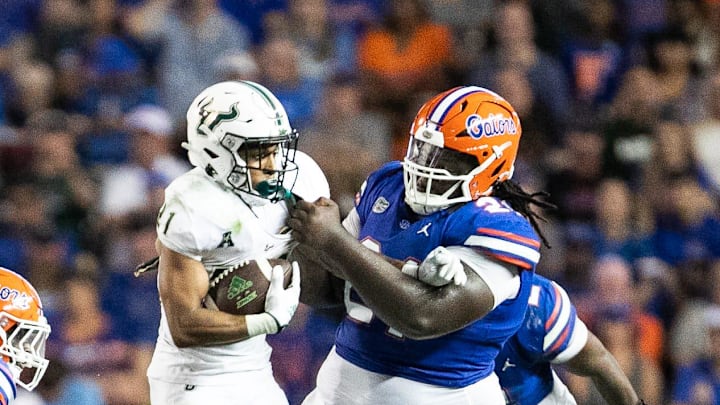After decades of iron-fisted control by the NCAA, athletes have the power now. And while many may sing funeral dirges about the death of college sports as we used to know them, they need to get over it.
If the NCAA hadn’t been so pigheaded about what athletes could and couldn’t do while raking in billions for executives and high-sounding administrators, college sports might not be in a code-red panic about what comes next.
Like all schools with major athletic programs, USF has realized that navigating the complex new world of NIL—Name, Image, and Likeness—would require impeccable organization and resources that don’t currently exist.
But rather than clutch pearls, USF announced a significant step forward toward staying competitive in this uncertain era that almost seems to be happening on the fly.
USF Vice President for Athletics Michael Kelly announced the formation of a new NIL strategy unit at the school. It does not replace the Fowler Avenue Collective, which is an independent body with a mission to educate, market, and support USF student-athletes.
“College athletics is changing and evolving rapidly, and the University of South Florida intends to be on the forefront of that evolution,” Vice President for Athletics Michael Kelly said in a news release.
“We are building a model athletic department for these modern times. As the era of permissiveness with what we can provide student-athletes and revenue sharing continues to evolve, South Florida intends to be as aggressive as we can be and continue to meet every new standard.”
After a series of legal challenges by former athletes alleging the NCAA profited from athletes’ names, images, and likenesses long after the players had finished their careers. The NCAA’s policy was that none of that money went to the players. That changed in 2021 and led to a $2.8 billion settlement in May, with the players receiving backpay and future revenue considerations.
The turmoil forced the NCAA to reconsider its strict stance on amateurism, and that’s what schools like USF are grappling with now.
Andrew Warren, USF’s current associate athletic director and Football Chief of Staff, was named General Manager of the NIL strategy unit.
According to the release, staff members research NIL opportunities and marketing as well as other tasks. They will oversee the scheduling and execution of NIL commitments.
“There is a great commitment from the university and Vice President for Athletics Michael Kelly to participate in NIL opportunities at the highest level allowed,” Warsaw said.
“The NIL Strategy team working with our outstanding student-athletes, coaches, donors, partners, and fast-growing community will be a big part of our ability to do just that and be in a position for success as the collegiate sports landscape continues to evolve.”
This is how the game will be played going forward.
There used to be a saying that if major college teams weren’t cheating, they weren’t trying. NCAA rules were designed to strictly limit athletes’ income to books, board, and tuition, but everyone knew what was going on.
At the University of Florida, for instance, the late Charley Pell was nailed for 107 rules violations and 59 sanctions for illegal recruiting. Pell had a system set up through boosters to make direct payments to players. He got fired, and the Gators were hit with three years of probation, bowl bans, scholarship reductions, and were barred from appearing on TV during their penalty.
Miami and Florida State also had their turns with probation. SEC schools such as Auburn and LSU have tainted histories.
One wonders if those instances would just be normal business today. At least USF is trying to bring some order to what has traditionally been a messy deal conducted in the shadows.
It has been a long time coming.
